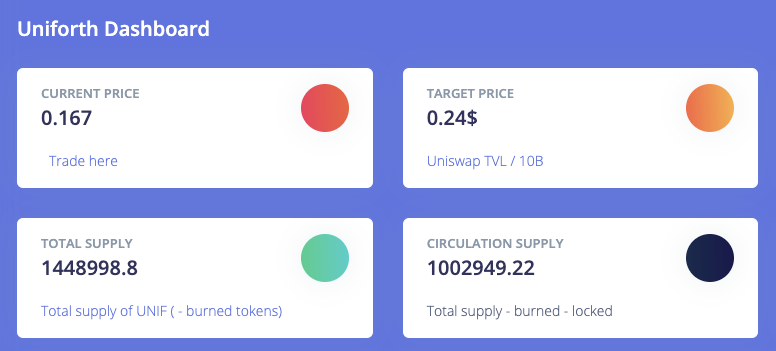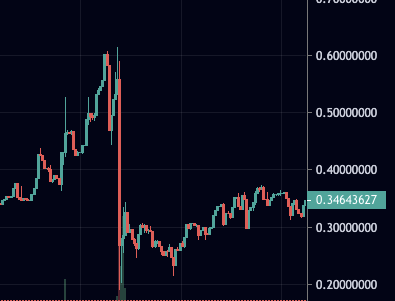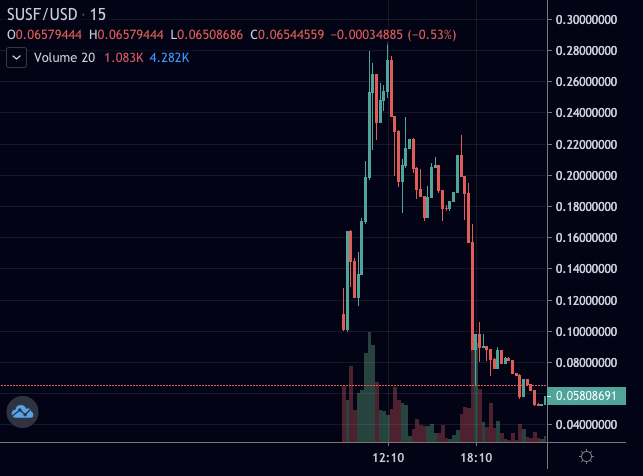Rebase tokens / elastic supply tokens are often misunderstood.
People called "rug pull" when the positive rebase of $UNIF happened, same for $SUSF yesterday.
"Dead by rebase" People dumped bc. looking at the price it was dead.
This wasn't a rug. But, how do rebases work?
People called "rug pull" when the positive rebase of $UNIF happened, same for $SUSF yesterday.
"Dead by rebase" People dumped bc. looking at the price it was dead.
This wasn't a rug. But, how do rebases work?

A price-elastic token is one where the project's total token supply is not fixed, but instead automatically adjusts on a routine basis: a 'rebase'.
They have a target price, and rebase mechanics facilitate that target by in increasing or decreasing the total supply.
They have a target price, and rebase mechanics facilitate that target by in increasing or decreasing the total supply.
“Rebases,” take place at a set time, i.e. every 24H. In such a way that users’ proportional holdings ultimately don’t change and thus aren’t diluted.
If you had 1% of the circulating supply after a rebase your token amount is changed but not your % of the total supply.
If you had 1% of the circulating supply after a rebase your token amount is changed but not your % of the total supply.
If we take $UNIF for example:
"Uniforth $UNIF is a crypto asset pegged to the total Uniswap liquidity in the Uniswap ecosystem."
UNIF rebase is pegged to total Uniswap liquidity at 1:10B ratio.
If 2.4B is locked in uniswap, target (rebase) price would be 24cents.
"Uniforth $UNIF is a crypto asset pegged to the total Uniswap liquidity in the Uniswap ecosystem."
UNIF rebase is pegged to total Uniswap liquidity at 1:10B ratio.
If 2.4B is locked in uniswap, target (rebase) price would be 24cents.
So at the moment, the $UNIF target price is $0.24 but $UNIF currently trades for $0.167. Which is 44% lower.
If this would be the rebase moment the total supply needs to decrease by ~44% to get to the target price of $0.24. This is called a 'negative rebase'.
If this would be the rebase moment the total supply needs to decrease by ~44% to get to the target price of $0.24. This is called a 'negative rebase'.
Say you have 1,000 $UNIF which has a total value of $167. After this 44% negative rebase you will have 560 tokens of $0.24, which is still $167.
Positive rebases can look like a 'rug pull'.
Here $UNIF traded at $0.591 before the rebase which had a target of $0.193. When looking at the price chart, the drop almost looks like a rug.
Only now all holders had 201% more tokens in their wallet.
Here $UNIF traded at $0.591 before the rebase which had a target of $0.193. When looking at the price chart, the drop almost looks like a rug.
Only now all holders had 201% more tokens in their wallet.
Yesterday $SUSF traded at $0.156 target was $0.10 after the +56% positive rebase people misunderstood the concept. Saying the rebase was a rug and kept dumping.
(yes the 600 ETH raised in the pre-sale was too much for a solid pump as well.)
(yes the 600 ETH raised in the pre-sale was too much for a solid pump as well.)
Rebases are designed to be tradable and could be profitable.
However, rebasing has a compounding effect.
After a positive rebase you'll have much more tokens with a potential upside. Negative rebases combined with a plunging market cap could lead to compounding losses.
However, rebasing has a compounding effect.
After a positive rebase you'll have much more tokens with a potential upside. Negative rebases combined with a plunging market cap could lead to compounding losses.

 Read on Twitter
Read on Twitter





